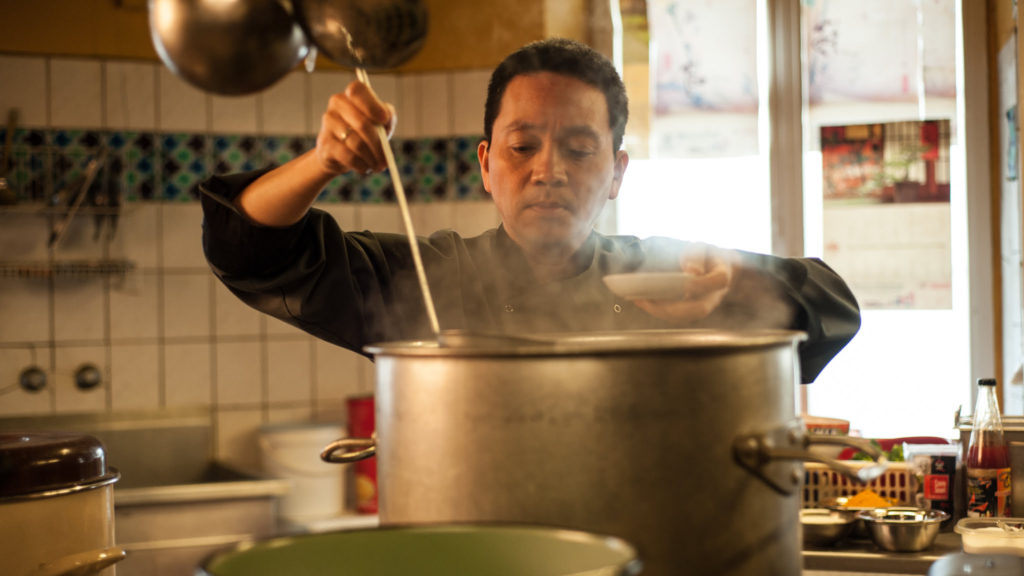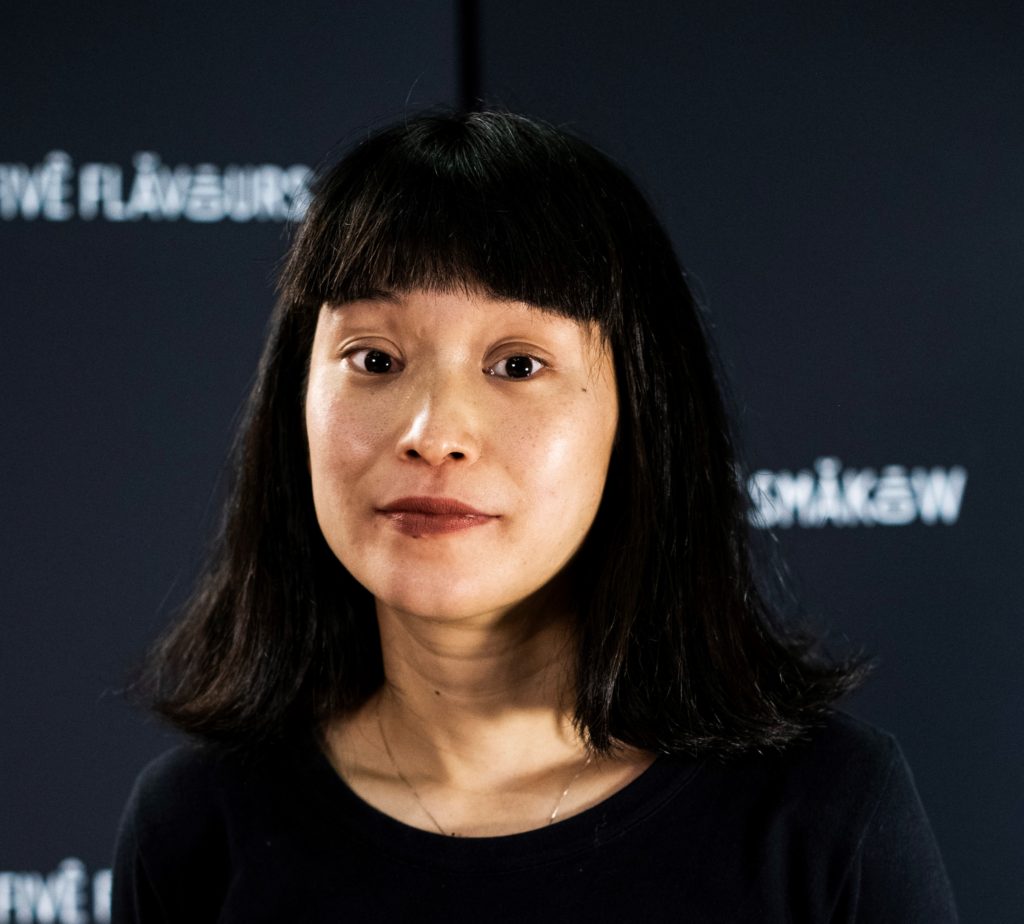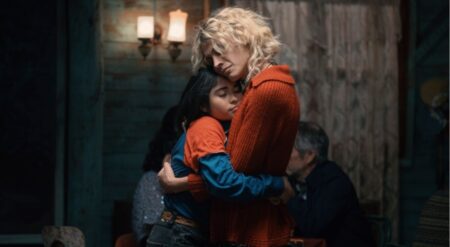
For her feature film, debut writer and director Mariko Bobrik gives insight into how the structured lives of a cook and his young daughter gradually change when she begins to rebel, and he begins preparing new dishes in The Taste of Pho which screened in the Toronto Reel Asian International Film Festival during its first-ever digital event.
In this new episode of Carolyn Talks… I speak with Bobrik about how her film beautifully illustrates a family grieving the loss of a loved one, the emotional toll being an immigrant takes on People of Color, and how food fits at the center of them all.

For Long (Thang Long Do) cooking the traditional Vietnamese dishes of his homeland is comforting. The steps for creating the perfect Pho broth are as familiar, and routine as the steps he takes to get his daughter Maja (Lena Nguyen) ready for school every morning. Each day he wakes up, irons a pleated plaid skirt for her uniform, does her hair, and prepares a lunchbox filled with traditional dishes for her to eat. And each day Maja hides a pair of ripped jeans in her backpack, sullenly tells her father goodbye, and sneakily throws away the food carefully prepared for her in the school dumpster. Both have no idea of the significance of their actions in the individual daily routines.
The cold air and cloud-filled skies of Warsaw, Poland are a world away from the blue skies and humidity of Vietnam. As an immigrant Long has had to adapt almost everything he does. Like changing the spiciness of Pho to suit the more sensitive Polish palette, he learns to adjust to an expected but sudden change when his friend and fellow Viet Hien, sell the restaurant because he and his wife want to return home. With new management comes an entirely new menu and way of doing things. Seeking to be part of the commercialization of Asian cultures and dishes, the new owner turns to making sushi, which he sees as being more upscale and sophisticated. Gone is the warmth of a kitchen filled with the humidity of giant pots of broth boiling on the stove, in their place are bowls of sushi rice being cooled by mini fans and the dainty rolls which Long perfected in special classes.
A part of growing up – and life – is change. Most of us are resistant to change when it seems that everything change brings with it is bad. For Maja change meant the loss of her mother, creating grief that won’t leave. In this persistent state of grieving, Maja like her father also learns to adapt. She learns to get ready for school every day, play with her friends, and eat the dinners her father prepares for her. But as she does her best to remain herself she begins to rebel. Maja can’t understand why her prayers for her mother to be returned from heaved remain unanswered, and she can’t understand why her father seems perfectly fine without his wife.
In this state of confusion, she sees Long as moving on, forgetting about his wife, and Maja unable to voice her frustrations attacks the one thing she knows her father is most familiar with, his heritage. That her anger and frustrations come out after a farewell party for Hien and Coc – another maternal figure in Maja’s life that leaves her – isn’t unexpected. For her parting gift, Coc gives Maja and Ao Dai (Vietnamese traditional dress), which she wears, while the other children in attendance wear their *regular western clothes. It’s in small details like this that Bobrik proves to be excellent at showing where her characters’ are mentally and emotionally.
It’s in the moments without dialogue that The Taste of Pho speaks the loudest. Long sitting in a corner to listen to music that evokes the sounds of waves and imagery of his wife’s feet moving gently across the carpet, keeping a painting of a Vietnamese fisherman performing his daily routine on a river to hang in the restaurant despite it no longer being a Vietnamese restaurant, or quietly observing Maja as she says hurtful things to him about his food and culture, before saying what he has to, are the times Long’s grief at losing his wife and homeland become clear.
The Taste of Pho is a heartwarming and lovingly crafted film about the human experience. It’s a film any immigrant can see visions of their own lives in, especially those from an ethnic community. In Long and Maja the loving and at times the contentious relationship between a parent and their child are seen, and in the food, a home filled with old but well cared for things we see comfort and stability.
Bobrik has crafted a film that is as simple and complex as a steaming bowl of Pho, or if were to use a traditional dish from back home in Barbados, a Conkie, a snack that very closely resembles the Bánh tét which Maja helps Long to prepare at the end of the film, that I took as a sign of reconciliation and finally understanding of each other.
For information at ReelAsian24 and the Toronto Reel Asian Film Festival, visit, ReelAsian.com. You can follow Carolyn on Twitter and Instagram @Carriecnh 12.
About Mariko
Mariko was born on April 6, 1983 in Fukuoka, Japan. She is a director and actress, known for The Taste of Pho (2019), Lisica i Mandarynka (2012) and Kebab i Horoskop (2014).







